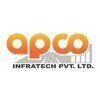


i
Filter interviews by
Chaitanya Projects Consultancy Interview Questions and Answers
17 Interview questions
Span length refers to the distance between two supports of a bridge, crucial for design and structural integrity.
Span length is measured from the center of one support to the center of the next support.
It affects the load distribution and overall stability of the bridge.
For example, a simple beam bridge may have a span length of 20 meters.
Longer spans, like those in suspension bridges, can exceed 1,000 meters.
Project risks encompass uncertainties that can impact project success, including financial, technical, and environmental factors.
Financial Risks: Budget overruns can occur due to unexpected costs, such as material price increases.
Technical Risks: Design flaws may lead to structural failures, necessitating redesign and delays.
Environmental Risks: Unforeseen geological conditions can complicate construction, requiri...
Vendor management can be effectively managed through clear communication, setting expectations, regular performance evaluations, and fostering strong relationships.
Establish clear communication channels with vendors to ensure expectations are understood
Set clear performance metrics and regularly evaluate vendor performance
Develop strong relationships with vendors based on trust and mutual respect
Negotiate contract...
I prioritize clear communication, set clear expectations, delegate tasks effectively, provide support and feedback, and utilize project management tools.
Prioritize clear communication to ensure everyone is on the same page
Set clear expectations for each staff member to avoid confusion
Delegate tasks effectively based on individual strengths and workload
Provide support and feedback regularly to help staff members su...
To find a vendor immediately required, utilize online vendor directories, ask for recommendations from colleagues, attend industry events, and utilize social media platforms.
Utilize online vendor directories such as Alibaba, ThomasNet, or Global Sources.
Ask for recommendations from colleagues or industry contacts.
Attend industry events and trade shows to network with potential vendors.
Utilize social media platform...
The volume of EV2 subgrade and blanket material can be calculated based on the dimensions and density of the materials.
Calculate the volume by multiplying the area of the subgrade or blanket material by the thickness
Consider the density of the material to convert volume to weight if needed
For example, if the area of the subgrade is 100 square meters and the thickness is 0.5 meters, the volume would be 50 cubic met...
Limit cu and cc refer to the maximum allowable values of undrained shear strength and compression index in soil mechanics.
Limit cu is the maximum undrained shear strength of soil, typically ranging from 0.5 to 10 ksf.
Limit cc is the maximum compression index of soil, usually between 0.1 to 1.0.
These limits are important in geotechnical engineering for determining the stability and settlement characteristics of soi...
There are various types of bed testing, including durability testing, stability testing, and comfort testing.
Durability testing involves assessing the bed's ability to withstand wear and tear over time.
Stability testing checks the bed's ability to support weight and movement without tipping or collapsing.
Comfort testing evaluates the bed's overall comfort level, including factors like firmness and pressure relief.
GSA, MDD, and CBR tests are procedures used in civil engineering to assess the strength and stability of materials.
GSA (Gradation, Shape, and Angularity) test is used to evaluate the particle size distribution of aggregates.
MDD (Maximum Dry Density) test determines the maximum density achievable for a soil sample at a specific moisture content.
CBR (California Bearing Ratio) test measures the strength of a soil sam...
Chemical test in steel is a process of analyzing the composition of steel to determine its chemical properties.
Chemical tests are used to determine the amount of carbon, sulfur, phosphorus, and other elements in steel.
These tests are important for ensuring that the steel meets the required specifications for its intended use.
One common chemical test is the spectrometric analysis, which uses a spectrometer to measu...
Chaitanya Projects Consultancy Interview Experiences
16 interviews found
I appeared for an interview in May 2025, where I was asked the following questions.
- Q1. Can you tell me about yourself?
- Q2. What is span length?
- Ans.
Span length refers to the distance between two supports of a bridge, crucial for design and structural integrity.
Span length is measured from the center of one support to the center of the next support.
It affects the load distribution and overall stability of the bridge.
For example, a simple beam bridge may have a span length of 20 meters.
Longer spans, like those in suspension bridges, can exceed 1,000 meters.
- Q3. What is risk associated with project
- Ans.
Project risks encompass uncertainties that can impact project success, including financial, technical, and environmental factors.
Financial Risks: Budget overruns can occur due to unexpected costs, such as material price increases.
Technical Risks: Design flaws may lead to structural failures, necessitating redesign and delays.
Environmental Risks: Unforeseen geological conditions can complicate construction, requiring ad...
- Q4. When can join
- Q5. Your family details
- Ans.
I come from a close-knit family that values education, support, and shared experiences, which have shaped my career and personal growth.
My parents are both engineers, which inspired my interest in structural design from a young age.
I have a younger sister who is studying architecture, and we often discuss design principles and innovative solutions.
Family gatherings are frequent, where we share our professional experien...
- Q6. Are you ready to relocate
- Ans.
Absolutely, I am open to relocating for the right opportunity to advance my career and contribute to impactful projects.
I have previously relocated for a project in California, which enhanced my skills and broadened my professional network.
Relocating allows me to immerse myself in new environments and tackle unique engineering challenges.
I understand the importance of being on-site for collaboration with teams and stak...
Interview Preparation Tips
I appeared for an interview in Sep 2024.
30 questions, all aptitude based.
(1 Question)
- Q1. Introduction and basics about my subject.
Interview Preparation Tips
(2 Questions)
- Q1. Xyzabbbbbbbbbbbbbbbbbbbbbbbbbb
- Q2. Abcdzzzzzzzzzzzzzzzzzzzzzzzzzzzzzz
Interview Preparation Tips
I applied via Approached by Company and was interviewed in Sep 2023. There was 1 interview round.
(4 Questions)
- Q1. How many types of Bed testing
- Ans.
There are various types of bed testing, including durability testing, stability testing, and comfort testing.
Durability testing involves assessing the bed's ability to withstand wear and tear over time.
Stability testing checks the bed's ability to support weight and movement without tipping or collapsing.
Comfort testing evaluates the bed's overall comfort level, including factors like firmness and pressure relief.
- Q2. What is the procedure of GSA, MDD and CBR Test
- Ans.
GSA, MDD, and CBR tests are procedures used in civil engineering to assess the strength and stability of materials.
GSA (Gradation, Shape, and Angularity) test is used to evaluate the particle size distribution of aggregates.
MDD (Maximum Dry Density) test determines the maximum density achievable for a soil sample at a specific moisture content.
CBR (California Bearing Ratio) test measures the strength of a soil sample b...
- Q3. What is the limit cu and cc
- Ans.
Limit cu and cc refer to the maximum allowable values of undrained shear strength and compression index in soil mechanics.
Limit cu is the maximum undrained shear strength of soil, typically ranging from 0.5 to 10 ksf.
Limit cc is the maximum compression index of soil, usually between 0.1 to 1.0.
These limits are important in geotechnical engineering for determining the stability and settlement characteristics of soil.
For...
- Q4. What is the volume of EV2 Subgrade and Blanket Material
- Ans.
The volume of EV2 subgrade and blanket material can be calculated based on the dimensions and density of the materials.
Calculate the volume by multiplying the area of the subgrade or blanket material by the thickness
Consider the density of the material to convert volume to weight if needed
For example, if the area of the subgrade is 100 square meters and the thickness is 0.5 meters, the volume would be 50 cubic meters
(2 Questions)
- Q1. About current company
- Q2. About current project
I applied via Naukri.com and was interviewed in Nov 2023. There were 2 interview rounds.
(1 Question)
- Q1. Experience, previous salary, previous co. Name, total Experience letter, salary slip and discuss for location
Kis co. Me kya kya kaam kiya
I appeared for an interview before Feb 2024.
(2 Questions)
- Q1. Can you describe your previous work experience?
- Ans.
I have 5 years of experience as an Admin Executive in a multinational company.
Managed office operations including scheduling appointments, coordinating meetings, and handling correspondence
Handled travel arrangements for senior management
Maintained office supplies inventory and placed orders when necessary
Assisted in organizing company events and team-building activities
Prepared reports and presentations for management...
- Q2. Can you describe your previous work responsibilities and provide a brief overview?
- Ans.
I was responsible for managing administrative tasks, coordinating schedules, and supporting executives.
Managed calendars, scheduled meetings, and coordinated travel arrangements for executives
Handled correspondence, prepared reports, and maintained office supplies
Assisted with event planning and coordinated logistics for company events
Managed office budgets and expenses, processed invoices, and maintained financial rec...
(3 Questions)
- Q1. How can vendor management be effectively managed?
- Ans.
Vendor management can be effectively managed through clear communication, setting expectations, regular performance evaluations, and fostering strong relationships.
Establish clear communication channels with vendors to ensure expectations are understood
Set clear performance metrics and regularly evaluate vendor performance
Develop strong relationships with vendors based on trust and mutual respect
Negotiate contracts tha...
- Q2. What strategies do you use to effectively manage multiple staff members simultaneously?
- Ans.
I prioritize clear communication, set clear expectations, delegate tasks effectively, provide support and feedback, and utilize project management tools.
Prioritize clear communication to ensure everyone is on the same page
Set clear expectations for each staff member to avoid confusion
Delegate tasks effectively based on individual strengths and workload
Provide support and feedback regularly to help staff members succeed
...
- Q3. How to find vendor immediately required.
- Ans.
To find a vendor immediately required, utilize online vendor directories, ask for recommendations from colleagues, attend industry events, and utilize social media platforms.
Utilize online vendor directories such as Alibaba, ThomasNet, or Global Sources.
Ask for recommendations from colleagues or industry contacts.
Attend industry events and trade shows to network with potential vendors.
Utilize social media platforms lik...
Interview Preparation Tips
I applied via Naukri.com and was interviewed in Dec 2022. There were 2 interview rounds.

(2 Questions)
- Q1. HORTICULTURE AND LANDSCAPING EXPERT SOFTWARE ENGINEERING AND SYSTEM ENGINEERING
- Q2. AGRICULTURE TECHNOLOGY LANDSCAPING TECHNOLOGY
Interview Preparation Tips
Assistant General Manager HR and Administration Interview Questions & Answers
posted on 25 Nov 2024
I applied via Referral and was interviewed before Nov 2023. There was 1 interview round.
(2 Questions)
- Q1. What is your vision if getting chance to lead the HR Team.
- Q2. During the whole session, what do you find to work upon by us.
I appeared for an interview before Apr 2024, where I was asked the following questions.
- Q1. About your self
- Q2. Skill related question
- Q3. About your work experience
Top trending discussions






Chaitanya Projects Consultancy Interview FAQs
The duration of Chaitanya Projects Consultancy interview process can vary, but typically it takes about less than 2 weeks to complete.
Tell us how to improve this page.
Chaitanya Projects Consultancy Interviews By Designations
- Chaitanya Projects Consultancy Assistant Bridge Engineer Interview Questions
- Chaitanya Projects Consultancy Site Engineer Interview Questions
- Chaitanya Projects Consultancy Highway Engineer Interview Questions
- Chaitanya Projects Consultancy Assistant Quality Material Engineer Interview Questions
- Chaitanya Projects Consultancy Assistant Highway Engineer Interview Questions
- Chaitanya Projects Consultancy Bridge Engineer Interview Questions
- Chaitanya Projects Consultancy Business Technology Analyst Interview Questions
- Chaitanya Projects Consultancy HR Supervisor Interview Questions
- Show more
Interview Questions for Popular Designations
Overall Interview Experience Rating
based on 22 interview experiences
Difficulty level
Duration



Interview Questions from Similar Companies
Chaitanya Projects Consultancy Reviews and Ratings
based on 167 reviews
Rating in categories
|
Assistant Highway Engineer
36
salaries
| ₹3 L/yr - ₹5.4 L/yr |
|
Site Engineer
23
salaries
| ₹3 L/yr - ₹6 L/yr |
|
Project Engineer
16
salaries
| ₹2 L/yr - ₹5.2 L/yr |
|
Assistant Bridge Engineer
15
salaries
| ₹3.8 L/yr - ₹6 L/yr |
|
Business Development Executive
12
salaries
| ₹3 L/yr - ₹7 L/yr |

L&T Construction

Simplex Infrastructures

L&T Energy Hydrocarbon

AECOM
- Home >
- Interviews >
- Chaitanya Projects Consultancy Interview Questions











